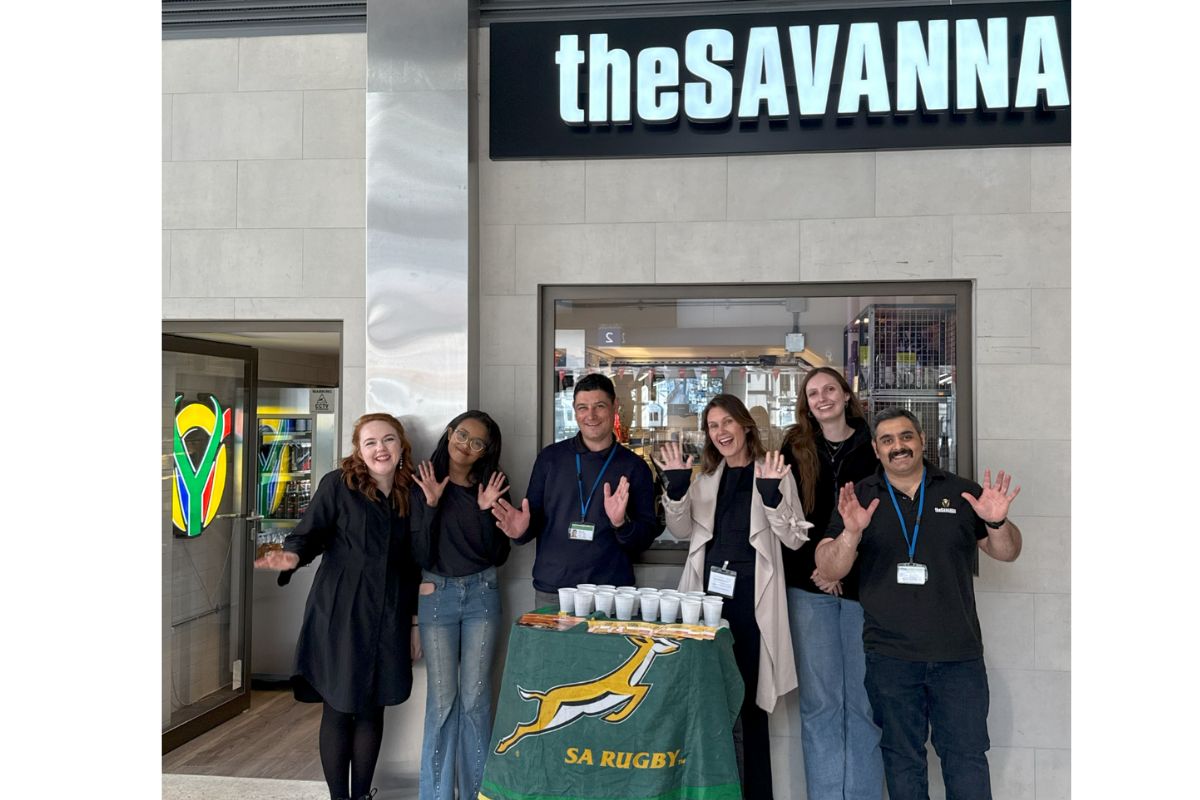
From SA beginnings to leading London’s Biltong: Lisa Gardshol and The Savanna
South African entrepreneur Lisa Gardshol reveals how she grew The Savanna into fifteen UK stores, a booming online business, and a producer of award-winning biltong.

Interview by Gordon Glyn-Jones | Part of the SA Gamechangers series
Lisa Gardshol founded The Savanna in 2005 in London with a simple mission: to bring authentic South African flavours to the UK’s populace and diaspora. What began as a chaotic single store in Raynes Park, with Lisa initially the silent partner, grew under her leadership into a thriving business of fifteen stores and two websites, a bespoke butchery, and a nationwide online presence serving 150 thousand customers. Through two recessions, the global financial crisis and the pandemic, without support from outside investors or debt, Lisa built a loyal team of around seventy staff and scalable infrastructure. Today, she is pioneering data-driven expansion, new app offerings, and a major capacity upgrade in their Wimbledon butchery.
“We built The Savanna without relying on outside investors or debt, and through two major recessions. Our people and resilience are our greatest assets.” — Lisa Gardshol
Raynes Park to the UK: Building a Dream from Scratch
When did you move to the UK and why?
I have always loved travelling. After finishing school in South Africa, I spent time exploring Europe and eventually settled in Scotland, where my mother’s family is from. I studied in Aberdeen, then joined Marks and Spencer. Those seven years taught me everything about retail. I started on the shop floor, managing top stores in my mid-twenties, before moving to the head office as a ladieswear buyer. It gave me a full picture of how to serve customers while keeping tight control over stock, purchasing and product ranges.
After a master’s in IT and a short spell at Arcadia, I took time out to focus on my young daughters. Then came the chance to open a small South African shop in Raynes Park, and I was hooked.
What made you believe it would work?
There were only a handful of South African shops back then. Raynes Park had a big South African community, and we knew there was an appetite for the products. We took over a bankrupt café with a shoestring budget, bought second-hand tills and shelving, and built the shop ourselves. Word spread fast. On opening day, the queue stretched around the corner, people were banging on the door, and we were still pricing stock as they came in. It was chaotic, but it showed we had struck a chord.
Lessons in Resilience and Adaptability
How did your Marks and Spencer experience shape The Savanna?
Retail is detail. Having started as a silent partner, the business was in chaos after the initial few years, so I had to step in full-time and rebuild it. Professionalising IT systems, financial planning and resetting supplier relationships. The key lesson from Marks and Spencer was to control your own supply chain – we were far too reliant on others for groceries and our meat products, and were often out of stock on popular braai days. So we eventually built out our own butchery and set up an export business, which took years of work, but it allowed us to take control of how we scaled up our business.
What sets The Savanna apart?
We understand our customers deeply. Every store has its own personality. In Raynes Park, families fill baskets for the week. In Liverpool Street, commuters grab biltong and a quality bottle of wine. In Victoria, we have customers from across Africa and beyond, so the product range reflects that. We have twenty years of sales data and a social media team constantly engaging with customers, which means we can adapt quickly.
What have crises like 2008 and the pandemic taught you?
In 2008, we had already secured our own supply chain, which helped us stay competitive. The pandemic was a different challenge, overnight, twelve shops closed. We shifted everything online within weeks, rebuilt our websites, set up a warehouse and a fulfilment team, and kept trading. When shops reopened, we retained ninety percent of our web business. That resilience came from having control over the supply chain and a team ready to adapt.
“At the end of the day, people have to eat. We just had to make sure our offering was appetising enough to keep us moving through the crisis.”
You employ people in South Africa too?
Yes, and I am proud of that. We have buyers, finance, HR, social media and customer service teams in Cape Town. I also have a sponsorship licence to bring skilled people to the UK. More than ten have relocated with their families, and some now own shares in the business. It creates a management team that is as committed to growth as I am.
Growth, Innovation and the Power of Data
You have opened two new stores recently. Tell us about them.
Waterloo Station has over two million weekly footfall and is already performing brilliantly. Guildford serves a big South African community with a full grocery range and a great team. Our aim is to open one store each year, expand the butchery by forty percent, and grow wholesale.
What are the hidden challenges of opening new stores?
Working with landlords such as Network Rail involves strict compliance, safety checks and sign-offs. I like to meet deadlines, so delays can be frustrating, but I have worked with the same project manager and contractors for more than twenty years. That trust makes a big difference.
How important is AI and data to your future?
Data is everything. We collect it from tills, loyalty cards, credit card transactions and social media. Our business analyst has created tailored dashboards and heat maps showing peak shopping times. This means we can schedule staff to match demand and give customers the best service. Retailers who ignore data risk falling behind.
“If retailers do not embrace AI and analyse their data, they will be in trouble. It is the only way forward.”
What is next for customers?
We are launching an app to make shopping more convenient and create a Savanna community. The butchery expansion will support both retail and wholesale expansions. We will keep adding stores, but selectively, and focus more on scaling our online business.
How big is the South African community in the UK?
It is hard to know. Within our business, Southern African customers represent about 70% of our business, and we have over 150 thousand customers. So in Raynes Park, 80 percent of our customers are South African, but in central London, it is closer to sixty percent. Many British customers have visited South Africa and come in for our wine, boerewors or biltong. Unsurprisingly, our meat products are by far our biggest lines.
Staying True to the Brand
Final thoughts?
We want to keep building awareness around the quality of South African produce, from stunning wines and biltong to the braai culture, and encourage the British market to embrace it, just as they have Italian food or Indian curries. Our aim is steady, sustainable growth, living within our means, while staying true to our South African roots.
Find out more: thesavanna.co.uk and meat.co.uk
